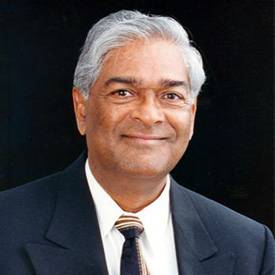Norman E. Borlaug: The Man I Worked With and Knew
 |
| Dr. Sanjaya Rajaram |
Much has been written about Norman Borlaug, the agricultural scientist and humanitarian whose achievements are widely recognized; to add to those writings is a difficult task. This blog is an attempt to provide a personal perspective on Norman Borlaug that can come only from someone who has worked closely with him throughout his professional life.
I have endeavored to recollect my early impressions of working with Borlaug as a wheat breeder in Mexico and to highlight his innovative approach to wheat breeding, as well as his views on global population, food security, fertilizers, organic agriculture, biotechnology and conventional academia. His work ethic was instrumental in his vision for the international agricultural system as an implement of change in the world. Borlaug´s field work involved crosses at Cd Obregon and Toluca in in Mexico, the establishment of shuttle breeding between these locations. The concept of shuttle breeding was very unconventional in the 1950´s and he was heavily criticized for this methodology. However, the shuttle allowed him to breed rust resistant, photoperiod insensitive wheat.
This wheat became the backbone of wheat varieties in the Green Revolution with twice the yield potential and a high-level of rust resistance. Despite being a geneticist and plant pathologist, Norman recognized that regardless of the genetic potential of a crop, no yield increases could be achieved unless the other factors of crop production (water and nutrients) were adequately supplied. In the early 2000´s, Borlaug embraced using genetically modified crops as a new tool for disease and insect resistance as well as quality improvement. He talked about a gene revolution for Africa.
From his early years, Dr. Borlaug expressed his concerns about global population and food supply. In his views, the political leaders, including the Pope, did little to stem the “population monster,” so he constantly advocated family planning. Initially, he assumed that producing a “mountain of grain” was the solution for world hunger. Later, he realized that food security could only be achieved by giving developing countries the technical means to economically produce their own food; and enabling policy to make it available at an affordable price to all.
Norman Borlaug was imbued with extraordinary zeal to help the poor, achieved exceptional success in improving wheat outputs in south Asia and was the most acclaimed public figure in the past century in terms of improving nutrition and livelihood. Although criticized by environmentalists, he had a love for nature and believed that fertilizers were more beneficial to the environment by reducing pressure on marginal lands and nature reserves and had an encyclopedic view of global issues. Although Dr. Borlaug was almost superhuman, he was still a human being, possessing the same frail human traits as we all do.


